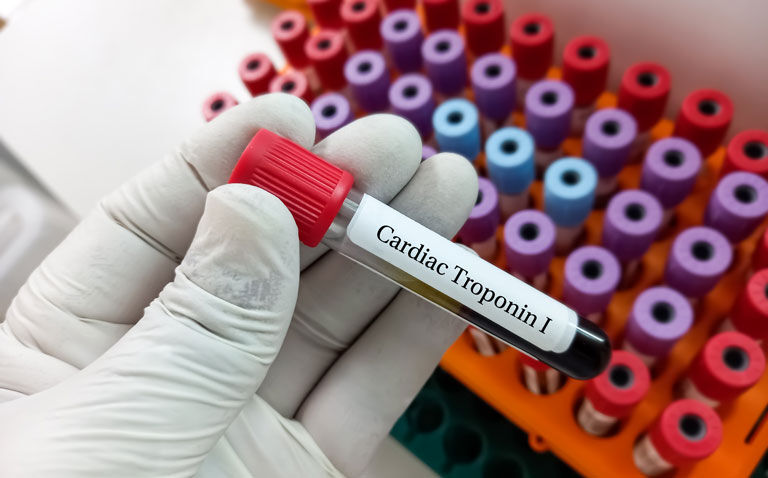Raised cardiac troponin in acute dyspnoea could be a useful prognostic marker in those without an acute myocardial infarction (MI).
Acute dyspnoea is a common complaint within an emergency department (ED). Dyspnoea is also a common symptom of an acute myocardial infarction (MI), affecting nearly two-thirds of patients. This consequently necessitates prompt patient assessment.
High-sensitivity cardiac troponin T (CTT) can quickly assess patients with chest pain to rule out an MI. Nevertheless, elevated cardiac troponin T levels can also occur in those experiencing chest pain without an MI.
In the current study, researchers set out to determine role of CTT in ED patients presenting with acute dyspnoea not due to an acute MI. Adult patients with acute dyspnoea were included and CTT levels measured together with their clinical history. CTT levels were divided into three levels: <15, 15-100 and >100 µg/l. An analysis provided the three-month relative risk of mortality with adjustment to models for a patient’s clinical history.
Cardiac troponin and three-month mortality risk
A sample of 1001 patients had usable data. With CTT levels < 15 set as the reference point, a CTT level between 15 and 100 gave rise to a more than three-fold higher mortality risk (Hazard ratio, HR = 3.68 (95% CI 1.72-7.84). The mortality risk was even higher with levels above 100 µg/l (HR = 10.523, 95% CI 4.46-24.80).
Patients with higher cardiac troponin levels were generally older, had a higher number of co-morbidities and more severe symptoms. The researchers felt that the data highlighted the value of CTT as an important risk factor in acute dyspnoea without a cardiac cause.










